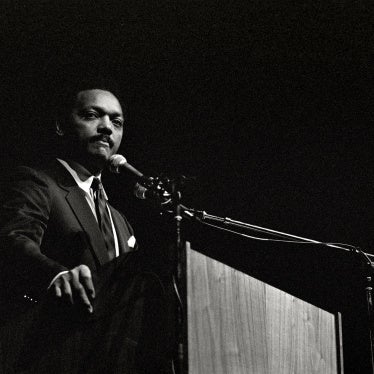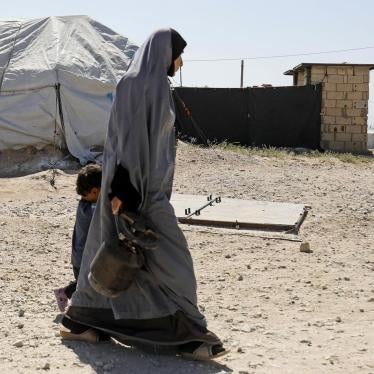Dear President Cullerton, Senator Radogno, Speaker Madigan, and Representative Cross:
Human Rights Watch is writing to urge you to support SB 3539, a bill to abolish capital punishment in the state of Illinois. Through its 10-year moratorium on the use of the death penalty, Illinois has sent the clear message that it recognizes the severity of and problems associated with imposition of the sentence of death. Human Rights Watch urges the Assembly to take the next step, and enact legislation to finally abolish the death penalty in the state.
There are many compelling reasons for Illinois to end its use of capital punishment. As you are undoubtedly aware, since 1973, 138 persons - including 20 in Illinois - have been released from US death rows after they were shown to be innocent of the crimes for which they had been sentenced to die. Some had come within days of execution. A mature democracy simply cannot tolerate the risk that a person will be executed for a crime he or she did not commit.
There is also increasing awareness of the significant racial disparities in capital sentencing. Evidence continues to accumulate that those who kill white people are far more likely to be sentenced to death than those who kill African-Americans or other people of color. A 2007 study of eight death penalty states by the American Bar Association concluded that "every state studied appears to have significant racial disparities in its capital system," but that "little, if anything, has been done to rectify the problem."
In addition, Illinois, as documented by the Death Penalty Information Center (DPIC) in 2010, has spent over $100 million on death penalty assistance to counties since 2003, yet has not executed one person in those seven years. California spends over $137 million per year on death penalty administration, and has spent over $4 million to try to execute one person. With strapped state budgets across the country, these are dollars that could clearly be spent more effectively.
SB 3539 is part of a growing trend against the death penalty in the United States. Only 12 states carried out executions in 2010. DPIC notes in its most recent report on capital punishment that executions have dropped 50 percent in the last 10 years. Death sentences have also dropped by more than 50 percent in the last decade.
However, even with these declining rates of execution, the United States stands increasingly alone among democratic nations in its continued use of the death penalty. All of the Council of Europe's 47 countries have abolished capital punishment. India, the world's largest democracy, has not executed anyone in the last five years. In 2009, countries such as Yemen, Vietnam, Syria, Sudan, Libya, and Egypt executed far fewer people than the United States.
The cornerstone of human rights is respect for the inherent dignity of all human beings and the inviolability of the human person. Human Rights Watch opposes capital punishment because the inherent dignity of the person cannot be squared with the death penalty, a form of punishment unique in its cruelty and finality, and a punishment inevitably and universally plagued with arbitrariness, prejudice, and error. It is widely rejected by countries viewed by the United States as its peers. It is also costly. For all of these reasons, we urge you to support SB 3539.
Very truly yours,
Antonio Ginatta
Advocacy Director, US Program








